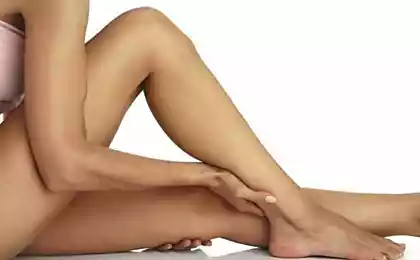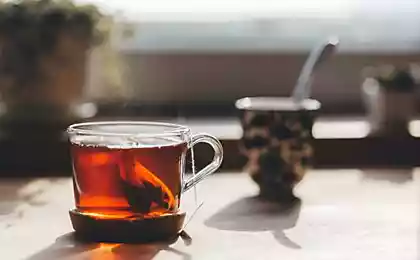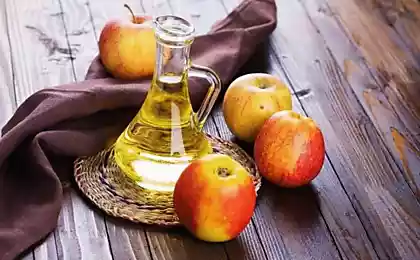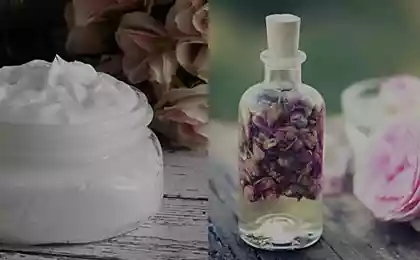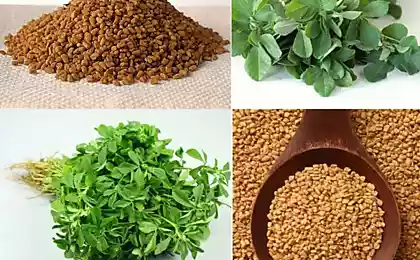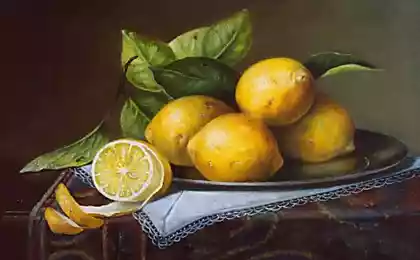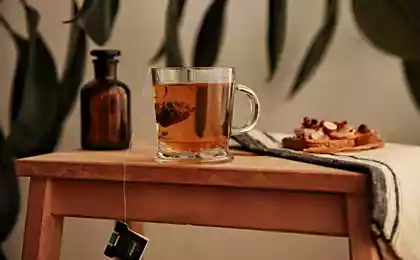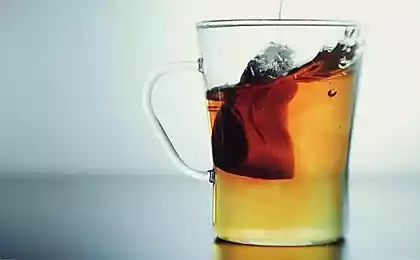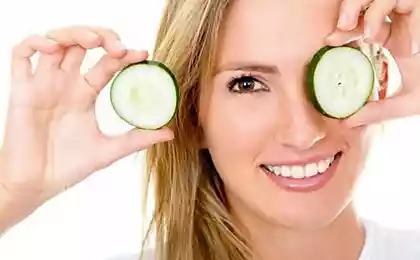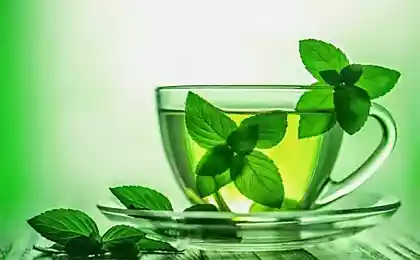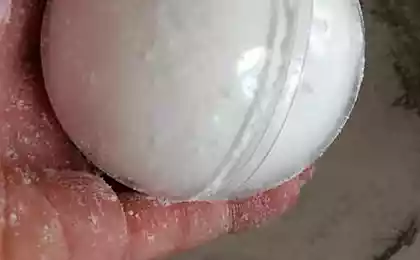1067
Tea Secrets
In many countries, the Tea Party - part of the daily ritual, a sign of status and luxury. However, the tea - is not just a nice drink. Although no one knows exactly where he came from, it is believed that tea was conceived as a curative tonic, which was used in ancient China and then gradually spread throughout the world. The world of tea is certainly captors, so that put a kettle and let us together take a trip into the history of this wonderful drink.
The infusion of herbs
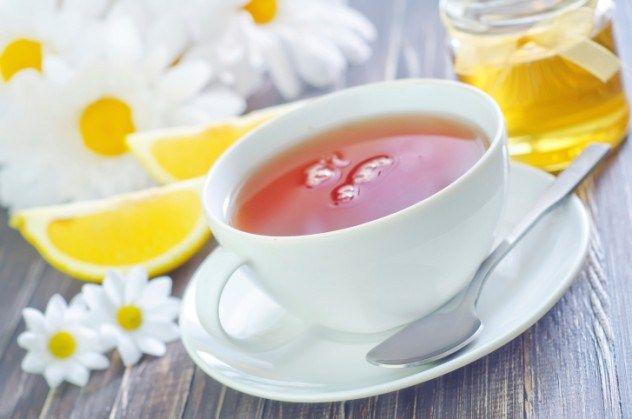
When we drink tea, in fact, we use what is called a decoction of herbs. What may be considered as tea, should contain the leaves of the plant Camellia sinensis, or tea plant. Unfortunately, a mixture that can be seen on store shelves are often different herbal combinations that have nothing to do with the tea bush.
In the past, people have realized that the combination of various herbs have medicinal properties, and the main purpose of herbal infusions - is to improve health. Chamomile, for example, helps with insomnia, and ginger is often used in disorders of the stomach.
If the broth does not contain tea leaves, it does not have caffeine, and it can be used at any time of the day.
The Japanese tea ceremony
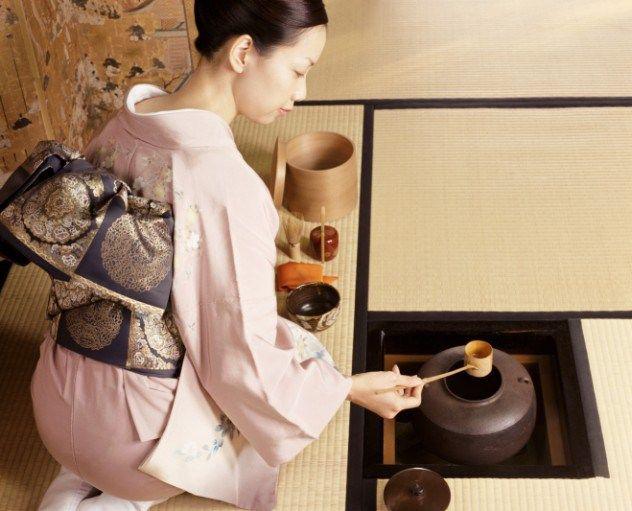
An important part of the Japanese culture - the tea ceremony, which includes the use of exquisite green tea powder, known as a "match." However, the ritual is more like a public ritual. The fact that the original tea ceremony was an art form, practiced by the elite of Japanese society to maintain its status. Every action in the ceremony focused on what it sees as a guest.
The ritual usually involves 4 to 5 people. In addition to green tea are served sweets. Tea ceremony paid special attention in the Japanese culture, so in order to achieve perfection in this business, you need a long time to train.
Remove caffeine from tea

What to do if you want to drink tea without caffeine, and in your arsenal just the usual black or green tea? Many believe that there is a simple solution - remove the caffeine alone. To do this, just need to pour boiling water over the tea for 30 seconds, discard the tea leaves and brew the tea again. But as it turned out, so just do not get rid of caffeine.
The researchers decided to calculate how much time it takes to remove the caffeine from the tea bag. It turned out to get rid of 90% of the caffeine, you need a bag to brew a good 10 minutes or so. That is, will have to wait longer, but it is a good tea can be brewed several times.
Soy lecithin
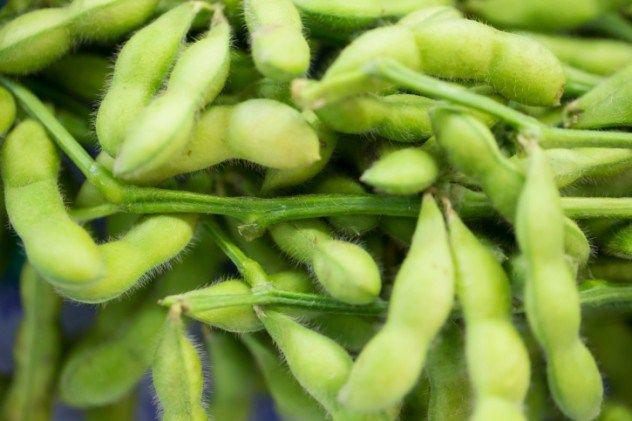
"Celestial Seasonings", one of the most famous tea brands, became the target of attacks for the content of soya lecithin. Of course, the company claims that the use of non-GMO soybeans, and only for the best combination of ingredients. However, for people with allergies to soy, it is an entire issue to the remaining soybean poses no threat.
Lecithin itself has been widely studied, and although the results of his study are not conclusive, it is believed that it has a positive effect on health. In the studies described lecithin as an effective tool in the fight with ulcerative colitis, also known as inflammatory bowel disease. Presumably it can be used to treat a range of other diseases, such as Parkinson's disease, Alzheimer's disease and bipolar disorder.
L-theanine

Caffeine contained in tea, has a stimulating effect, but not so strong as caffeine in coffee. The reason for this - L-theanine, is rather curious effect on the brain.
Studies have shown that L-theanine has beneficial effects on brain activity. It is valued for its ability to enter into a meditative state of man, ie, you relax, but do not fall asleep. It was also found that this substance improves memory, reduces anxiety and is well suited to deal with stress.
Chai Masala
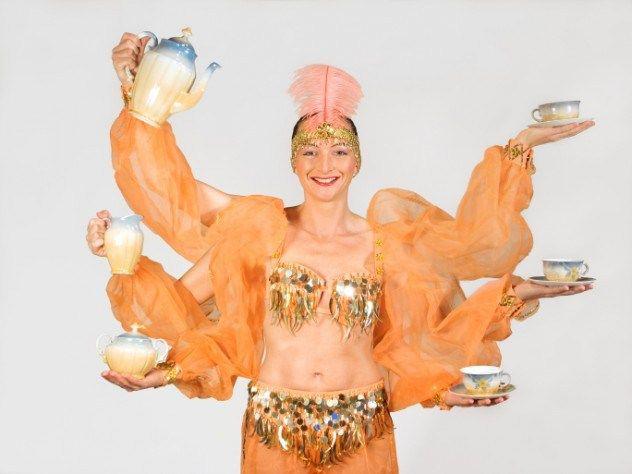
In the US, there is a drink that has been taken from Indian culture, which is called «chai» latte or tea. This drink is prepared by mixing black tea with spices: cardamom, cinnamon, ginger, cloves, anise, black pepper and vanilla. The drink is served with milk and honey. Or it is used in a hot or a cold.
However, it can get pretty funny situation, if you order this type of tea in most Asian countries. In India, Russia and other countries the word «chai» meaning "tea." Just out "chai tea", that you will agree, it sounds pretty silly. If you want to order this drink in India, it will be right to say "tea Masala", which translates as "tea with spices».
Pickled tea
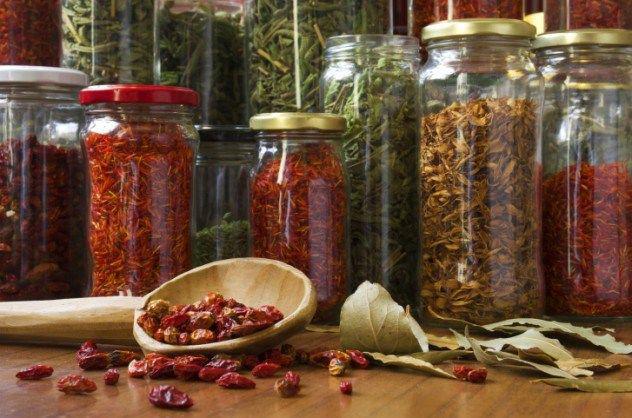
We believe that the tea - is that you can only drink, and in most countries it is. Despite this, Burma otherwise consume tea, namely pickled. The Burmese called a tea «lephet». To prepare a tea, tea leaves are softened, then cooled and rolled up tightly and allowed to ripen under the ground. In Burma lephet is present in all important ceremonies and is considered a delicacy. Burmese served this tea on a tray, along with a side dish: shrimp, sesame seeds, garlic, peanut or pea pods. While Burma is the only country that uses tea in food, people in this country also drink tea in liquid form.
"Pollution" tea
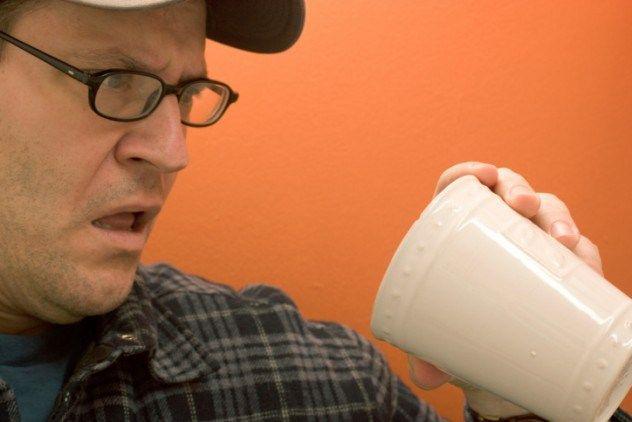
To ensure that the tea leaves do not contain anything harmful to health, studies have been conducted. It turned out that black and green tea contains a large amount of aluminum fluoride. According to the study, the amount of aluminum is less than the norm, but the amount of fluoride is so great that it can cause fluorosis of children. Of course, to be faced with this problem, you need to drink excessive amounts of tea.
Aluminum and fluorine compounds fall into the tea through the soil and, more often, found in tea brick color, which is often of poor quality. Some scientists believe that the aluminum content in tea contributes to the development of Alzheimer's disease. Therefore, one important task of scientists is to identify ways to minimize the amount of harmful substances in tea.
Guessing on tea
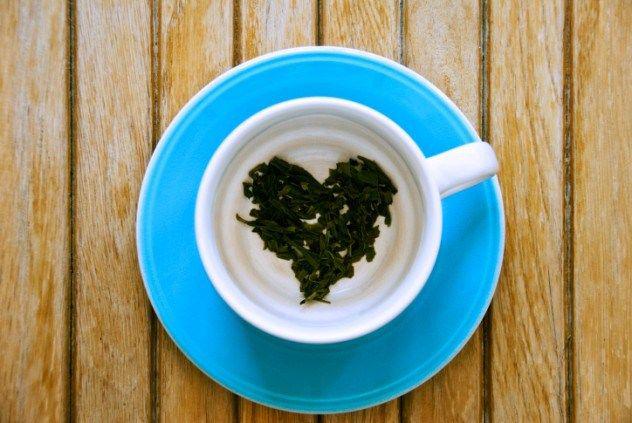
Tea has become so popular drink, that some countries have found it rather strange application, namely, guessing the remaining tea leaves in the cup. This form of divination is deeply rooted in ancient China, although it was probably popularized by gypsies. In times of persecution for witchcraft divination on tea it was quite popular, since the components required for this ritual is not suspicious.
To perform the ritual necessary to make tea with special inserts and give it to the man to drink, you guess. When it finishes, you must roll the what's left in the cup 3 times counterclockwise at the same time making sure that the handle is looking in the right direction. You can then proceed to the predictions of patterns that eventually you have turned.
Attention to health
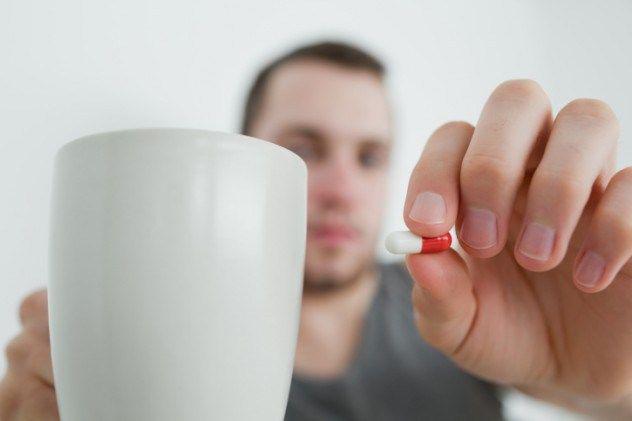
Originally tea was a health tonic drink and it is not surprising that the unraveling of its medicinal properties to focus on. Unfortunately, the results of these searches are rather contradictory.
One study, conducted among several thousand people for 37 years, found that those who consumed large amounts of tea per day, more often suffered from cancer of the prostate. However, another result of the experiment showed the exact opposite.
I tested a control group of men with a predisposition to prostate cancer. It was found that catechins are received in their body with green tea, gave positive results. In spite of this other tests conducted in this area, all to no avail. Of course, to understand how this affects the health drink, it is necessary to continue research in this exciting area.
The infusion of herbs

When we drink tea, in fact, we use what is called a decoction of herbs. What may be considered as tea, should contain the leaves of the plant Camellia sinensis, or tea plant. Unfortunately, a mixture that can be seen on store shelves are often different herbal combinations that have nothing to do with the tea bush.
In the past, people have realized that the combination of various herbs have medicinal properties, and the main purpose of herbal infusions - is to improve health. Chamomile, for example, helps with insomnia, and ginger is often used in disorders of the stomach.
If the broth does not contain tea leaves, it does not have caffeine, and it can be used at any time of the day.
The Japanese tea ceremony

An important part of the Japanese culture - the tea ceremony, which includes the use of exquisite green tea powder, known as a "match." However, the ritual is more like a public ritual. The fact that the original tea ceremony was an art form, practiced by the elite of Japanese society to maintain its status. Every action in the ceremony focused on what it sees as a guest.
The ritual usually involves 4 to 5 people. In addition to green tea are served sweets. Tea ceremony paid special attention in the Japanese culture, so in order to achieve perfection in this business, you need a long time to train.
Remove caffeine from tea

What to do if you want to drink tea without caffeine, and in your arsenal just the usual black or green tea? Many believe that there is a simple solution - remove the caffeine alone. To do this, just need to pour boiling water over the tea for 30 seconds, discard the tea leaves and brew the tea again. But as it turned out, so just do not get rid of caffeine.
The researchers decided to calculate how much time it takes to remove the caffeine from the tea bag. It turned out to get rid of 90% of the caffeine, you need a bag to brew a good 10 minutes or so. That is, will have to wait longer, but it is a good tea can be brewed several times.
Soy lecithin

"Celestial Seasonings", one of the most famous tea brands, became the target of attacks for the content of soya lecithin. Of course, the company claims that the use of non-GMO soybeans, and only for the best combination of ingredients. However, for people with allergies to soy, it is an entire issue to the remaining soybean poses no threat.
Lecithin itself has been widely studied, and although the results of his study are not conclusive, it is believed that it has a positive effect on health. In the studies described lecithin as an effective tool in the fight with ulcerative colitis, also known as inflammatory bowel disease. Presumably it can be used to treat a range of other diseases, such as Parkinson's disease, Alzheimer's disease and bipolar disorder.
L-theanine

Caffeine contained in tea, has a stimulating effect, but not so strong as caffeine in coffee. The reason for this - L-theanine, is rather curious effect on the brain.
Studies have shown that L-theanine has beneficial effects on brain activity. It is valued for its ability to enter into a meditative state of man, ie, you relax, but do not fall asleep. It was also found that this substance improves memory, reduces anxiety and is well suited to deal with stress.
Chai Masala

In the US, there is a drink that has been taken from Indian culture, which is called «chai» latte or tea. This drink is prepared by mixing black tea with spices: cardamom, cinnamon, ginger, cloves, anise, black pepper and vanilla. The drink is served with milk and honey. Or it is used in a hot or a cold.
However, it can get pretty funny situation, if you order this type of tea in most Asian countries. In India, Russia and other countries the word «chai» meaning "tea." Just out "chai tea", that you will agree, it sounds pretty silly. If you want to order this drink in India, it will be right to say "tea Masala", which translates as "tea with spices».
Pickled tea

We believe that the tea - is that you can only drink, and in most countries it is. Despite this, Burma otherwise consume tea, namely pickled. The Burmese called a tea «lephet». To prepare a tea, tea leaves are softened, then cooled and rolled up tightly and allowed to ripen under the ground. In Burma lephet is present in all important ceremonies and is considered a delicacy. Burmese served this tea on a tray, along with a side dish: shrimp, sesame seeds, garlic, peanut or pea pods. While Burma is the only country that uses tea in food, people in this country also drink tea in liquid form.
"Pollution" tea

To ensure that the tea leaves do not contain anything harmful to health, studies have been conducted. It turned out that black and green tea contains a large amount of aluminum fluoride. According to the study, the amount of aluminum is less than the norm, but the amount of fluoride is so great that it can cause fluorosis of children. Of course, to be faced with this problem, you need to drink excessive amounts of tea.
Aluminum and fluorine compounds fall into the tea through the soil and, more often, found in tea brick color, which is often of poor quality. Some scientists believe that the aluminum content in tea contributes to the development of Alzheimer's disease. Therefore, one important task of scientists is to identify ways to minimize the amount of harmful substances in tea.
Guessing on tea

Tea has become so popular drink, that some countries have found it rather strange application, namely, guessing the remaining tea leaves in the cup. This form of divination is deeply rooted in ancient China, although it was probably popularized by gypsies. In times of persecution for witchcraft divination on tea it was quite popular, since the components required for this ritual is not suspicious.
To perform the ritual necessary to make tea with special inserts and give it to the man to drink, you guess. When it finishes, you must roll the what's left in the cup 3 times counterclockwise at the same time making sure that the handle is looking in the right direction. You can then proceed to the predictions of patterns that eventually you have turned.
Attention to health

Originally tea was a health tonic drink and it is not surprising that the unraveling of its medicinal properties to focus on. Unfortunately, the results of these searches are rather contradictory.
One study, conducted among several thousand people for 37 years, found that those who consumed large amounts of tea per day, more often suffered from cancer of the prostate. However, another result of the experiment showed the exact opposite.
I tested a control group of men with a predisposition to prostate cancer. It was found that catechins are received in their body with green tea, gave positive results. In spite of this other tests conducted in this area, all to no avail. Of course, to understand how this affects the health drink, it is necessary to continue research in this exciting area.


